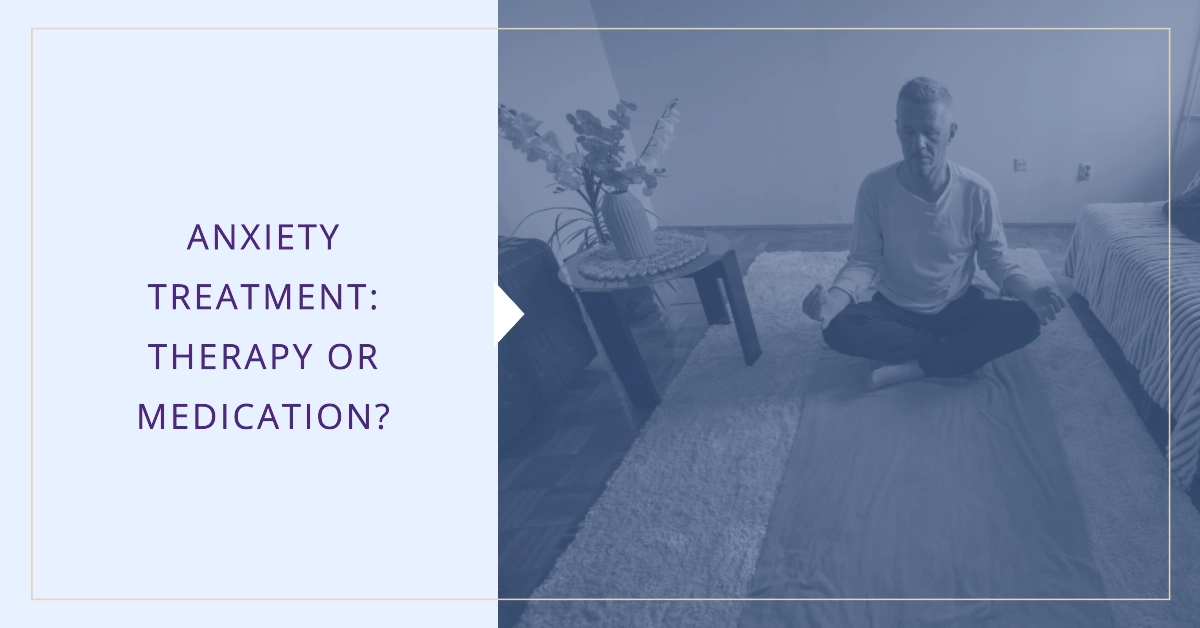Historical Background
The debate between anxiety therapy and medication is a product of centuries of medical and psychological evolution. Historically, the treatment of anxiety has been a journey of discovery, understanding, and innovation. In ancient times, anxiety was often attributed to supernatural forces and treated with rituals and potions. It wasn’t until the 18th and 19th centuries that anxiety began to be seen through a medical lens.
The 20th century marked a significant turning point with the advent of psychoanalysis and behavioral therapies. Figures like Sigmund Freud and Carl Jung pioneered the exploration of the unconscious mind, while later, B.F. Skinner and Albert Ellis developed behavioral and cognitive therapies, respectively. These therapies focused on altering thought patterns and behaviors without pharmaceutical intervention.
Concurrently, the discovery of benzodiazepines in the 1950s revolutionized the medical approach to anxiety, offering quick relief for symptoms through medication. This discovery set the stage for an ongoing exploration into pharmaceutical treatments, leading to the development of selective serotonin reuptake inhibitors (SSRIs) and other classes of drugs in the following decades.
The historical background of anxiety treatment is crucial to understanding the current landscape of therapy and medication. It highlights a fundamental shift from a purely psychological understanding of anxiety to a more integrated approach that considers both the mind and the biochemical processes of the body.
The Core Principles of Anxiety Therapy and Medication
Anxiety Therapy
The core principles of anxiety therapy revolve around understanding and changing the thought patterns and behaviors that contribute to a person’s anxiety. Cognitive Behavioral Therapy (CBT), one of the most widely used and researched forms of therapy for anxiety, is based on the concept that our thoughts, feelings, and behaviors are interconnected, and that changing negative thought patterns can lead to changes in feelings and behaviors.
Other forms of therapy, such as psychodynamic therapy, focus on the psychological roots of emotional suffering. It emphasizes understanding the influence of the past on present behavior. Meanwhile, humanistic therapies like Gestalt therapy focus on the present moment and self-awareness, helping individuals understand their life experiences and develop a stronger sense of self.
Medication
Medication for anxiety works on a different principle. It aims to alter the brain’s chemistry to reduce the symptoms of anxiety. SSRIs, for example, increase the level of serotonin in the brain, which can improve mood and reduce anxiety. Benzodiazepines work by enhancing the effect of the neurotransmitter GABA, which has a calming effect on the brain.
The choice between therapy and medication can depend on the severity of the anxiety, the individual’s personal history and preferences, and the presence of any co-occurring disorders.
When Anxiety Therapy vs. Medication is Most Beneficial
When to Consider Anxiety Therapy
Anxiety therapy is most beneficial when individuals are looking to address the root causes of their anxiety and develop long-term coping strategies. It is particularly effective for those who have clear triggers for their anxiety, who are willing to invest time into self-reflection, and who are looking for ways to manage their anxiety without the use of medication.
When to Consider Medication
Medication may be the better option for individuals who are experiencing severe anxiety that significantly impairs their daily functioning. It can provide rapid relief from symptoms, which can be crucial for those who are struggling to perform basic tasks or who need immediate stabilization.
A Step-by-Step Guide on What to Expect from Anxiety Therapy
- Assessment: A therapist will begin by conducting a thorough assessment to understand the individual’s symptoms, history, and the impact of anxiety on their life.
- Goal Setting: Together with the therapist, the individual will set goals for what they hope to achieve through therapy.
- Developing Skills: Individuals will learn various skills to manage their anxiety, such as relaxation techniques, cognitive restructuring, and exposure therapy.
- Application: These skills are then applied to real-life situations, starting with less challenging scenarios and gradually moving to more difficult ones.
- Maintenance: Over time, the individual will become more adept at managing their anxiety and will work with the therapist to develop a plan to maintain their progress.
The Mechanism: How Anxiety Therapy Achieves Results
Anxiety therapy, particularly CBT, achieves results by helping individuals identify and challenge their negative thought patterns and beliefs (cognitive restructuring), and by gradually exposing them to the situations that trigger their anxiety (exposure therapy) in a controlled and safe environment. This exposure helps to reduce the fear response over time. Additionally, therapy often incorporates skills training, such as stress management, relaxation techniques, and problem-solving skills, which equip individuals with practical tools to manage their anxiety.
Mindfulness-based therapies, another effective approach, work by teaching individuals to focus on the present moment and accept their anxiety without judgment. This can help break the cycle of worry that perpetuates anxiety symptoms.
Real-life Case Studies or Examples of Anxiety Therapy in Action
Case studies demonstrate the effectiveness of anxiety therapy. For instance, a study published in the “Journal of Anxiety Disorders” detailed the progress of a woman with social anxiety disorder. Through CBT, she learned to challenge her fear of judgment and gradually increased her participation in social situations, leading to a significant decrease in her anxiety levels.
Another example is a veteran with PTSD who, through prolonged exposure therapy, was able to revisit traumatic memories in a safe space, reducing the power those memories held over him and decreasing his anxiety and avoidance behaviors.
Common Misconceptions about Anxiety Therapy and Medication
Misconceptions about Anxiety Therapy:
- Therapy is endless: Many believe therapy requires a lifelong commitment. In reality, many therapy forms, like CBT, are time-limited and goal-oriented.
- Therapy is only for severe cases: Therapy can benefit anyone with anxiety, whether mild or severe.
- Therapy is about blaming the past: While understanding the past is part of some therapy approaches, the focus is on making positive changes in the present.
Misconceptions about Medication:
- Medication is a quick fix: While medication can provide quick relief, it doesn’t address the underlying causes of anxiety.
- Medication makes you emotionless: Properly prescribed and dosed medication should not numb emotions but rather help manage excessive anxiety.
- You’ll become dependent on medication: Not all anxiety medications are addictive, and dependency is a consideration that healthcare providers take seriously when prescribing.
Conclusion: The Lasting Impact of Anxiety Therapy vs. Medication
The lasting impact of anxiety therapy can be profound. Therapy equips individuals with the tools and strategies to manage their anxiety long-term, promoting personal growth and resilience. Medication can also have a lasting impact by providing immediate relief and stabilizing symptoms, which can be a necessary step for some individuals to engage in therapy effectively.
Ultimately, the choice between anxiety therapy and medication should be made on an individual basis, considering the person’s unique circumstances, preferences, and needs. It’s often not a matter of which is better, but which is better for the person at a specific time in their life.
5 FAQs about Anxiety Therapy vs. Medication
Can therapy and medication be used together?
Yes, often therapy and medication are most effective when used in conjunction.
How long does it take for therapy or medication to work?
Therapy can yield noticeable improvements within 5 to 10 sessions, while some medications can start to work within a few weeks.
Are there side effects to anxiety medication?
Yes, like all medications, those for anxiety can have side effects, which should be discussed with a healthcare provider.
Is anxiety therapy covered by insurance?
Many insurance plans do cover mental health services, but coverage varies, so it’s important to check with your provider.
Can anxiety be cured without medication?
Many people successfully manage or overcome anxiety through therapy alone, especially if their anxiety is mild to moderate.






